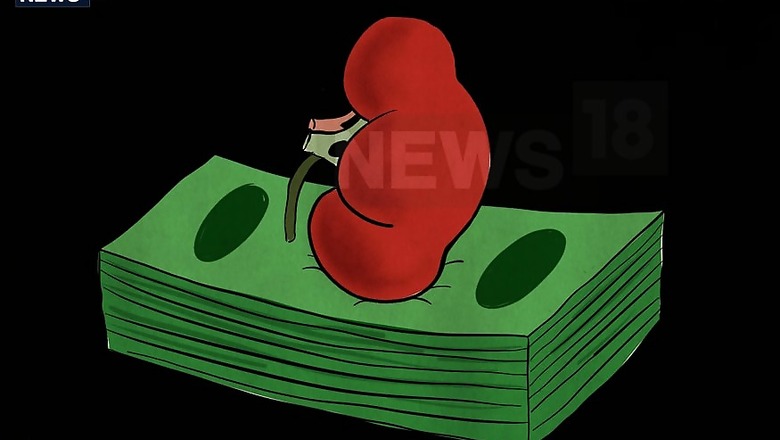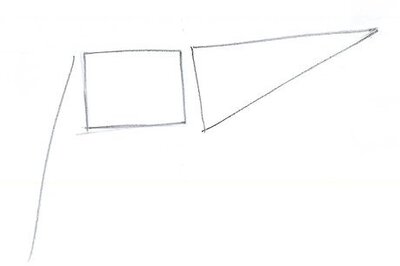
views
Chennai/Palakkad: The alleged inhuman treatment meted out to an accident victim in a Tamil Nadu hospital has set alarm bells ringing about a possible organ donation racket in the state.
The issue came to the fore about two weeks ago when Kerala chief minister Pinarayi Vijayan wrote a letter to his Tamil Nadu counterpart, complaining about the treatment provided to an accident victim from his state at a private hospital in Salem district.
In his letter on May 26, Vijayan sought an enquiry into the “unethical” medical practices.
“Manikandan (the victim) was declared brain dead and kept on ventilator… Since the relatives were not in a position to settle the medical bills of Rs 3 lakh… one person claiming to be a lawyer got signatures from relatives for donation of vital organs… no documents were provided… such incidents should never occur in a humane civilised society… all victims of road accidents deserve critical life-saving care and unfortunate victims should not be seen as commodities…,” Vijayan’s letter stated.
Reacting with immediacy, the Tamil Nadu government ordered a probe into the incident.
Authorities of Vinayaka Super Speciality Hospital, which is at the centre of the row, claim they have sufficient proof of a counselling session for the relatives, adding that they also signed a consent form, all of which was captured on the hospital’s CCTV.
However, Manikandan’s relatives back home in Kerala have a different story to tell.
Hari, a relative of the deceased, told News18 that the hospital authorities asked them if they were willing to donate the organs when Manikandan was still on ventilator.
“We refused to do so. That is when they asked us to pay the hospital bill of Rs 2.5 lakh and said we can claim the body after settling the bill. They started pressurising us to donate the organs and said they will ‘adjust’ the bills. They utilised our weakness and continuously pressurised us. Doctors told us organ donation is for free and it’s not business,” he said.
The family claimed that it asked the doctors to remove Manikandan from the ventilator to see his response, but they were turned down.
“The only thing we wanted was to take back his body by any means. It was practically impossible to remove him from ventilator and take him to another hospital as they did not agree to that and were insisting to make the payment and take the body… We were clueless about what to do as we were mentally upset,” Hari said.
He added that the bills were waived within hours, the organs sent to four different hospitals and Manikandan’s body was sent by ambulance to his native home free of cost.
Both Manikandan’s family and chief minister Vijayan raised questions about why the accident victims were taken to the particular hospital though it was about 120km away.
However, Manikandan’s family is not the only victim.
In October 2017, questions were raised about the similar fashion in which a 19-year-old accident victim at the Tanjavur Medical Hospital was air-lifted in his brain-dead state to a private hospital in Chennai where M Natarajan, the husband of Jayalalithaa’s aide VK Sasikala, was being treated for liver failure.
The teenager’s organs were then used to save 74-year-old Natarajan’s life, but he lived barely six months more.
Even then, the easy availability of a donor and the quick process had raised eyebrows.
The incidents have not only brought the focus on hapless families being forced to part with their kin’s organs, but also how foreign nationals seem to have benefited from organ donations in Tamil Nadu, probably at the cost of Indians who are waiting for a similar miracle.
News18 accessed the data of organ transplants facilitated by the Transplant Authority of Tamil Nadu (TRANSTAN) for the past two years.
Statistics show that 25 percent hearts and 33 percent lungs harvested from brain-dead persons in Tamil Nadu went to foreigners in 2017.
In 2018 so far, 10 foreigners have received Tamil Nadu’s hearts as compared to 50 Indians.
The number may seem less, but percentage-wise, it shows a huge disparity — there are 53 foreigners registered in the waiting list, as against 5,310 Indians.
Rules say foreigners can be considered for transplants only if there are no Indians to match the criteria of the brain-dead patients in the country. Even then, NRIs must be given preference.
“If you can’t find a recipient in the same district or state, then it goes to the respective Regional Organ and Tissue Transplant Organisation (ROTTO) that looks for a beneficiary in the same region. If there is no match even then, the organs are offered to the National Organ and Tissue Transplant Organisation (NOTTO),” said NOTTO director Dr Vimal Bhandari.
He added that there was a requirement of stricter guidelines to enforce this. “If there is no match, we can offer to foreigners, provided that foreigners are registered in that hospital,” Bhandari said.
When asked if it was a possibility that despite over 5,000 patients in the waiting list, there was no match within the country, he said: “I don’t know. There are other factors also — affordability, group match, distance, money… Sometimes it takes Rs 15 lakh for a transplant… If they (Tamil Nadu authorities) deny there is anything wrong, what can we do? I am not some inspector that I can conduct an inquiry.”
Tamil Nadu health minister C Vijaya Bhaskar told the state assembly on Tuesday that TRANSTAN was a transparent body, and the government was further working towards improving its transparency.
“We have ensured all transplants are done as per seniority on the wait list. We have to transplant a heart within six hours of harvesting it, else it is wasted. If we get decline messages for the organs from the respective donors due to non-compatibility, foreign patients are checked for suitability,” he said.
Vascular surgeon and former member-secretary of TRANSTAN, Dr J Amalorpavanathan, also dismissed charges of a racket.
“The reason is that not many Indians come forward for the surgery because it is very complicated. It was only after we gained sufficient experience and expertise in liver transplants that our costs went down and we had more Indians coming for it.
“Likewise, when we reach the same level for heart transplants, we will probably have more Indians coming forward too,” he told News18, pointing out that there have been no complaints from any Indians so far about being overlooked.














Comments
0 comment